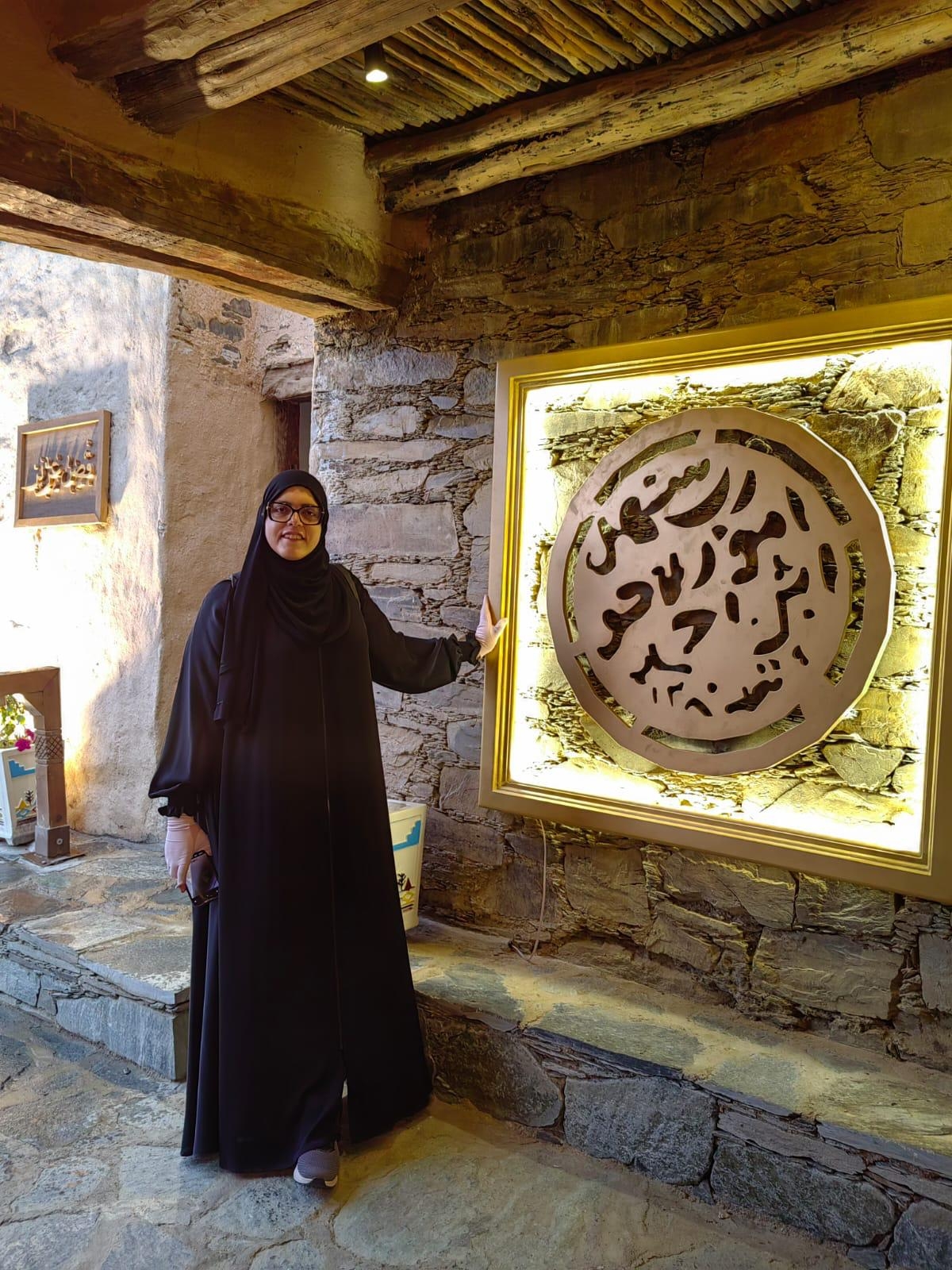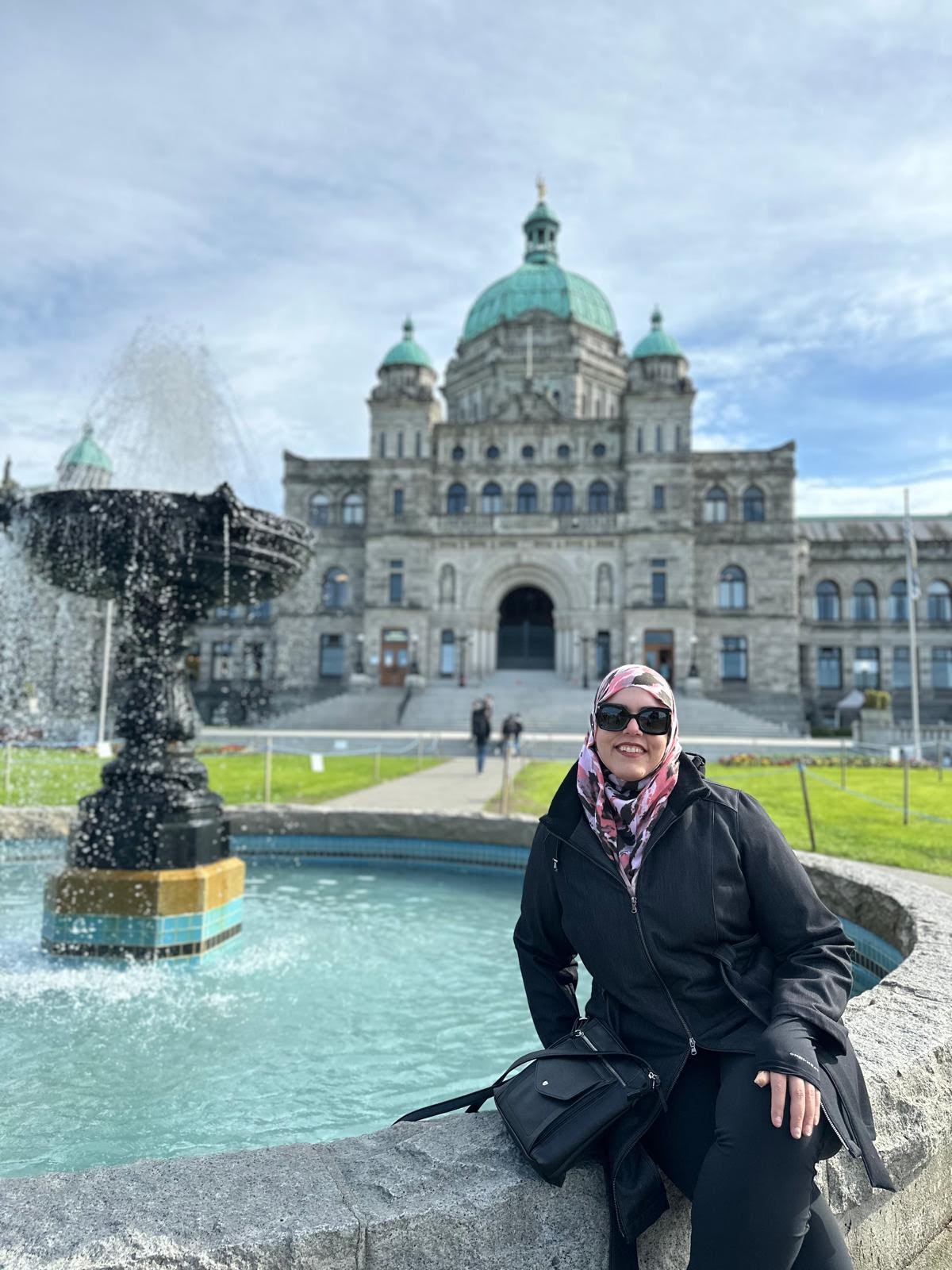Shams Moh'd Fares Khalaf Al-Anzi
Being a Public Scholar implies using my academic training to create meaningful change beyond university walls. It is a commitment to making knowledge accessible, actionable and co-owned by the communities it is meant to serve. As a hijabi Muslim woman and immigrant to Canada, I see public scholarship as a responsibility to challenge inequities, amplify marginalized voices and co-create spaces where lived experiences are valued alongside academic expertise.
Research description
What does being a Public Scholar mean?
Being a Public Scholar implies using my academic training to create meaningful change beyond university walls. It is a commitment to making knowledge accessible, actionable and co-owned by the communities it is meant to serve. As a hijabi Muslim woman and immigrant to Canada, I see public scholarship as a responsibility to challenge inequities, amplify marginalized voices and co-create spaces where lived experiences are valued alongside academic expertise. Being a Public Scholar is not only about producing research but also about building bridges — between research and practice, between students and communities, and between local realities and global health equity.
In what ways do you think the PhD experience can be re-imagined with this Initiative?
The Public Scholars Initiative re-imagines the PhD as a platform for societal impact rather than a narrow academic exercise. It embeds collaboration, inclusivity and knowledge mobilization as core elements of doctoral training, encouraging scholars to design projects that answer theoretical questions while addressing community needs. My own PhD exemplifies this approach by integrating advanced analyses of provincial data on West Asian, Middle Eastern and North African (WAMENA) youth with guidance from a youth advisory group that interprets findings and directs dissemination. This integrative process blends quantitative rigor with participatory engagement and demonstrates how research, knowledge sharing and social transformation can unfold simultaneously.
How do you envision connecting your PhD work with broader career possibilities?
My doctoral research equips me with a set of skills that extend far beyond academia. My expertise in youth mental health, digital engagement and technology use and equity frameworks prepares me for careers in public health policy, international organizations and non-profit leadership focused on migrant youth. My background as a registered nurse and educator also creates pathways to academic teaching and mentorship, where I can continue to foster inclusive classrooms that empower students' voices. In the longer term, I envision combining research, advocacy and teaching, whether within a university, research institute or clinical setting, to advance digital and health equity for populations living with marginalized and vulnerable conditions.
How does your research engage with the larger community and social partners?
Community engagement is at the heart of my research. I collaborate with WAMENA youth through advisory groups that discuss findings, identify culturally meaningful solutions and shape knowledge-mobilization strategies such as youth-friendly infographics, TikTok campaigns and multilingual resources. Beyond youth, I work closely with partners such as school districts, health organizations and policy-making organizations to ensure findings inform practical interventions. My previous collaborations on projects like women's mental health toolkits and wellness initiatives at UBC have shown me how community-based initiatives can create tangible resources that directly support people's lives. This ongoing partnership ensures my research remains accountable to those it aims to serve.
Why did you decide to pursue a graduate degree?
I decided to pursue a graduate degree to build the skills necessary to address systemic health inequities and amplify the voices of communities living with marginalized and vulnarable conditions. My experience as a nurse showed me how structural barriers — racism, migration stress, cultural stigma — shape health outcomes far more than individual choices. Graduate training in nursing research provides me with the tools to analyze population-level health disparities, integrate theoretical frameworks such as postcolonial feminism and intersectionality, and co-design solutions with communities. By undertaking a PhD and joining the Public Scholars Initiative, I gain a seat at the table where policy and practice decisions are shaped, and I am committed to ensuring that the voices of people living with vulnerable conditions are heard and represented. For me, pursuing a PhD is not only about advancing my career but also about fulfilling a responsibility to use research as a platform for advocacy and social change.
Why did you choose to come to British Columbia and study at UBC?
I chose UBC because of its commitment to equity-driven, interdisciplinary, and community-engaged scholarship. The School of Nursing provides an environment where my research interests — migrant youth mental health, climate change and mental health, digital engagement and participatory health research — are strongly supported. Working with faculty mentors like Dr. Elizabeth Saewyc, Dr. Rubee Dev and Dr. Saima Hirani and collaborating with interdisciplinary teams in Nursing, Public Health, Psychology and Forestry allows me to tackle complex health questions from multiple angles. UBC's unique location in British Columbia, with its diverse population and long-standing collaboration with the youth health survey infrastructures, makes it the ideal place to conduct my research. Equally important, UBC fosters a culture of mentorship and innovation that aligns with my values and vision as a scholar dedicated to social justice.







